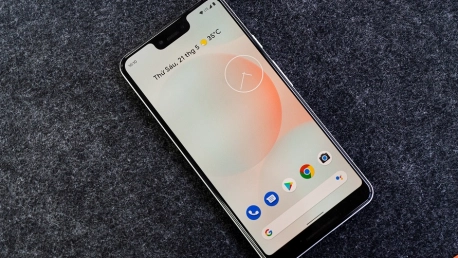Mobile phones have evolved beyond simple communication solutions. Individuals and organizations can rely on these devices for numerous conveniences, however, spyware is a critical threat to consider. This form of malware has returned to the public’s attention after a study revealed that some phones made by Chinese producers have pre-installed spyware apps.
This article will discover how mobile spyware works and what measures companies and individuals can take to protect their data against these threats.
How Spyware Works and What Measures Businesses Can Take to Secure Their Devices
Spyware is software designed to gather information from a device without the user’s knowledge or consent. It can be installed on mobile phones through various means, including malicious apps, email attachments or even text messages. Once installed, spyware tracks the user’s location, records conversations, and accesses personal data, such as emails, photos, and videos.
The consequences of spyware gaining access to mobile phones can be severe. These viruses can lead to identity theft, financial fraud, and psychological or physical harm. For instance, a cybercriminal can install spyware on the victim’s phone to track their movements, monitor their calls and messages, and access personal data, such as emails and photos.
To minimize spyware attacks and ensure their data is secure, organizations and individuals can employ the following solutions.
Keep Phone Software Updated
Regularly update mobile phones’ operating systems and all the associated apps. Updates often include security patches that address vulnerabilities that could be exploited by spyware. For instance, an updated antivirus can recognize modern spyware, while outdated systems are more susceptible to these attacks. Although phone updates cannot remove spyware or malware, this solution can make it more challenging for hackers to bypass the device’s security.
Install Anti-Spyware Software
There are numerous anti-spyware apps available for mobile phones, both free and paid. This software will detect the device’s system and either automatically remove spyware or prompt the user to do so. Many anti-spyware solutions are integrated with antivirus software, and to work effectively and accurately, users must update this software. A few popular anti-spyware apps include Malware Bytes, Norton Mobile Security, and Avast Mobile Security.
Be Cautious of Public Wi-Fi
Public Wi-Fi networks make it easier for hackers to install spyware on a user’s phone. For instance, hackers can deceive users into completing a phishing form or installing a dangerous app to record the user’s mobile activities. Devices may also be threatened by infected ads on websites that appear safe. To address these risks, companies, and individuals, must avoid logging into sensitive accounts or using payment apps on public Wi-Fi networks.
Avoid Clicking on Suspicious Links
Users may accidentally install spyware through malicious links in emails or text messages. Avoid clicking on links from unknown senders or links that seem too good to be true. Hackers can exploit personal information or control the user’s device through these links.
Create Strong Passwords
Use strong, unique passwords for all accounts, and consider using two-factor authentication for added security. This can help prevent hackers from gaining access to sensitive information. Creating a secure password is not complicated, and users must ensure they use these simple tracks to protect their devices.
Be Mindful of App Permissions
When installing new apps, consider the permissions they request. If an app requires access to contacts, messages, or other sensitive data, ensure these permissions are crucial for the app to function. Without taking these steps, users may download harmful apps and allow these apps access to their personal information. In fact, according to Hubspot Shield, third-party apps are the most common ways phones get infected with viruses.
Ensure Data Backups
While individuals and businesses can minimize their exposure to spyware threats, it’s critical to prepare for these threats. As such, users must ensure that their data automatically backups to restore lost and vital information compromised in a spyware attack. They can activate data backups on Google Cloud and iCloud, use an internal hard drive or USB, or both physical and remote solutions.
Regularly back up mobile phone data, so essential information remains safe if the device is compromised or has to be reset.
Android Phones from China Are a Privacy Nightmare
Researchers at the University of Edinburgh and Dublin’s Trinity College have recently discovered that numerous next-generation Android devices sold in China are being shipped to users with spyware already installed.
To conduct this study, the researchers analyzed data submitted by pre-installed apps on Android devices sold by Xiaomi, OnePlus, and Oppo Realme. They found that certain vendor or third-party apps are designed to exfiltrate user and device information. The exfiltrated information targets data about the system, geolocation, user profile, social relations, and call history.
The information is also passed on to the device provider and Chinese mobile network operators, such as China Mobile or China Unicom, even if they do not provide any service on the device.
Similarly, the researchers compared pre-installed apps on Android systems shipped in China with those shipped globally. They discovered that Chinese systems feature 3 to 4 times more pre-installed and third-party apps, with 8-10 times more permissions.
White House Gave Federal Agencies 30 Days To Ban TikTok From All Government Devices
On February 27, 2023, the White House set a 30-day period to remove the TikTok app from the devices and systems of all government agencies, Reuters reports. Congress took this measure to protect US data. While these risks affect a low number of TikTok users in the US, many in Congress believe it to be pivotal for data security, with similar initiatives underway in Canada, the European Union, and Taiwan.
TikTok declined to comment on the decision taken by the White House but indicated that such concerns are the result of misinformation and dismissed the possibility of using the app to spy on US citizens.
Conclusion
With the use of mobile devices at work increasing every year, organizations and individuals must take steps to protect themselves from these malicious programs. Spyware can gather and exploit sensitive information, resulting in financial fraud, identity theft, and physiological or physical harm. To minimize the risk of these attacks, individuals, and organizations should keep their phones updated, install anti-spyware software and avoid public Wi-Fi and suspicious links. In addition, it’s vital to be mindful of what app permissions users allow and ensure data backups.
While the US bans TikTok on government phones in fear of threats like spyware, researchers have confirmed that many smartphones have pre-installed spyware apps. Organizations must raise awareness about spyware, to help users protect their devices and data.









